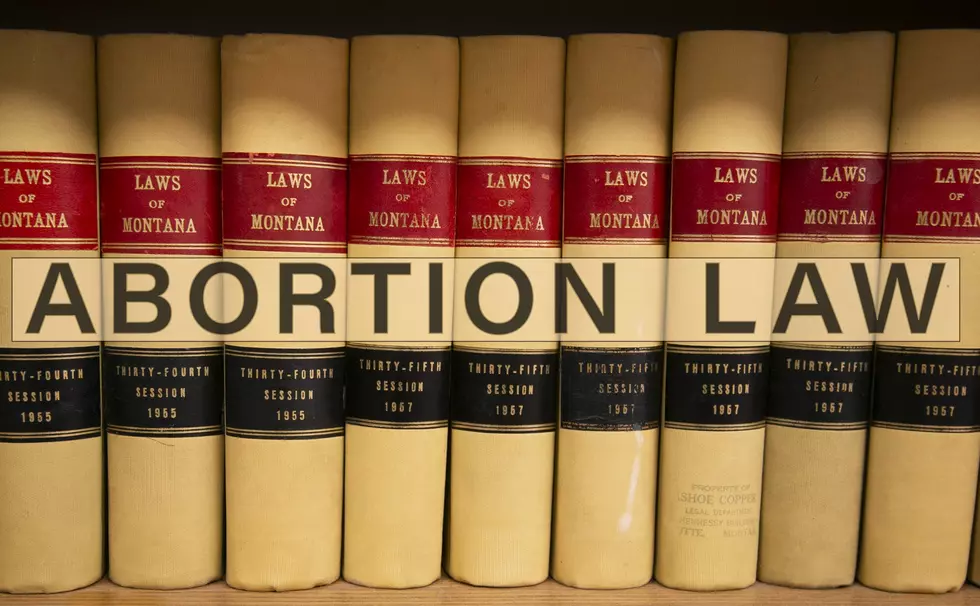
Montana Supreme Court upholds injunction on three abortion laws
(Daily Montanan) The Montana Supreme Court has upheld a Yellowstone County District Court judge’s decision to issue temporary injunctions against three laws passed by the 2021 Legislature that curtailed a woman’s right to an abortion in Montana.
While the court, in its 33-page decision written by Justice Beth Baker, found that Judge Michael Moses properly issued an injunction against the three laws, it said that like all temporary injunctions, it doesn’t mean that the laws are necessarily unconstitutional.
However, the decision also hinted that the court may continue to rely upon the 1999 Armstrong decision in which the state Supreme Court found that abortion was protected by the Montana Constitution’s privacy clause.
At issue on the appeal was whether Moses had properly evaluated the merits of the case in order to conclude that Planned Parenthood, which brought the challenge, had a prima facia – or at first glance – case of violating the constitution.
The three laws are House Bills 136, 171, and 140.
House Bill 136 bans abortions beginning at 20 weeks from the patient’s last menstrual cycle. The State of Montana argued that was the stage at which a fetus would be able to feel pain.
House Bill 171 eliminates tele-health services for medication abortions, and requires information about a medication regiment to “reverse” the procedure.
Finally, House Bill 140 mandates an abortion provider offer the patient an opportunity to view an ultrasound or listen to the fetal heart tone.
In addition to saying that the three laws appear to violate a patient’s right to privacy, the Supreme Court also reviewed the laws to ensure that if there are restrictions on personal liberties, they serve a compelling government interest and are tailored in such a way to be as least restrictive as possible while still achieving the state’s purpose.
The State of Montana argued that banning medication abortions was necessary for medical providers to assess the physical and mental condition of the patient. They added that HB 136 was crafted to prevent undue fetal pain and suffering. And finally, the state argued that some of the new reporting guidelines meant to monitor abortion activity in the state was constructed in such a way to provide data, but make it impossible to identify the patient.
Both Gov. Greg Gianforte and Attorney General Austin Knudsen have argued that in light of the United States Supreme Court decision to overturn Roe vs. Wade, the state should re-examine the Armstrong decision. However, Tuesday’s opinion may indicate the high court’s reluctance to change it because the justices used Armstrong as part of their decision.
“Because the district court found that challenged laws restrict access to abortion services, it applied strict scrutiny under Armstrong,” the court said. “The court followed our precedent and did not commit an error of law when it employed this standard.”
The court also pointed out that part of the reason Moses issued a temporary injunction was that information regarding an abortion pill reversal “is not medically sound and that requiring providers to discuss abortion pill reversal regulates the content of their speech. It noted that even the State’s experts agreed that abortion reversal medication is ‘experimental’ in nature.”
The Supreme Court also held that the district court properly stopped House Bill 171 because there’s a question of whether information that would be required would also violate privacy standards. The new law required providers to report the patient’s county of residence, the patient’s age, race, the cost of the treatment, preexisting conditions and the number of pregnancies.
“Patients of certain demographics easily may be identified in rural Montana communities,” the five-justice panel said. “The state offers no argument for why the District Court’s reasoning regarding the reporting of such detailed and unique personal information is faulty.”
Finally, the court sided with the district court barring the law requiring a woman seeking an abortion with an ultrasound or fetal heart tone to be implemented because it was unnecessary.
“Offer(ing) patients the opportunity to view an ultrasound is medically unnecessary. The expert opined that the intent of the law appears to be ‘only to shame the patient’ for the patient’s decision to seek an abortion. (The state) does not address the district court’s findings that the requirement serves no medical purpose and functions merely to discourage patients from obtaining abortions,” it said.
Now that the state Supreme Court has addressed the injunctions, the cases head back to Moses for further litigation, including whether the laws pass state constitutional muster.
